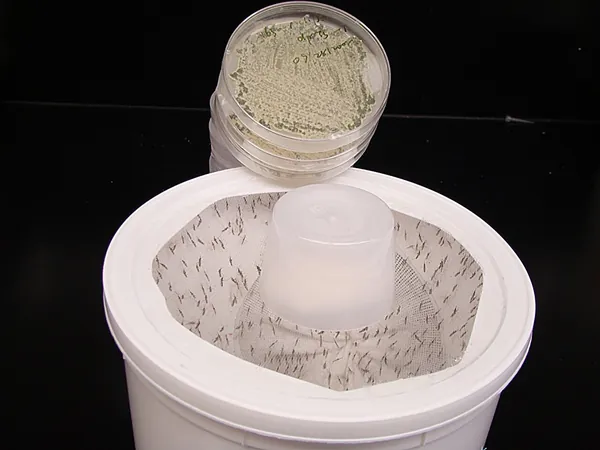
Revolutionary 'Mosquito STD' Developed to Battle Malaria
2025-06-03
Author: Mei
Scientists Turn Mosquitoes' Love Lives Against Them
In a groundbreaking achievement, a team of researchers, including experts from the University of Maryland, has transformed the mating rituals of mosquitoes into a lethal weapon against malaria. They have engineered a unique sexually transmitted disease, specifically targeting these disease-spreading insects, heralding a potential game-changer in the global fight against malaria.
Harnessing Nature's Power: The Deadly Fungus at Work
This innovative approach, published in the journal Scientific Reports, cleverly exploits the natural behavior of mosquitoes. By introducing a modified fungus called Metarhizium, researchers have created an insect-specific neurotoxin that fatally infects female mosquitoes—the primary culprits behind malaria transmission to humans.
Malaria is a dire global health threat, claiming over 600,000 lives annually, with the most vulnerable being children under five in sub-Saharan Africa. As mosquitoes evolve and develop resistance to traditional treatments, this new strategy could turn the tide in an ongoing battle against these relentless pests.
A Revolutionary Resistance Buster
Professor Raymond St. Leger, co-author of the study, emphasized the ongoing 'arms race' between humans and mosquitoes. As mosquitoes adapt to conventional control measures, scientists are compelled to innovate continuously. This new method takes advantage of mosquitoes’ own behaviors, making it a promising alternative to chemical repellents that mosquitoes are quick to resist.
Field Trials: A Stunning Success in Burkina Faso
Field tests in Burkina Faso yielded staggering results: nearly 90% of female mosquitoes died within two weeks after mating with males treated with the modified fungus, whereas only 4% mortality was observed in the control group. Crucially, this fungus poses no threat to humans, making it a safe weapon in the fight against malaria.
A Dual Attack on Mosquito Populations
Interestingly, the study revealed that infected male mosquitoes can transmit lethal fungal spores to females for up to 24 hours after initial exposure, enabling continued propagation of the fungus in the environment. Remarkably, this method does not dissuade female mosquitoes from mating with infected males, keeping mating rates stable. It also renders infected mosquitoes more vulnerable to standard insecticides, creating a double-edged sword for malaria control.
Towards a New Era in Malaria Prevention
Researchers envision the modified Metarhizium fungus as a pivotal tool in mosquito population management, especially when combined with traditional methods. While there are challenges to deploying this 'mosquito STD' effectively, the potential impact on global health could be monumental. This advancement symbolizes hope in humanity's relentless quest to combat mosquitoes, known as the deadliest creatures on Earth.
As Professor St. Leger aptly stated, "Eliminating mosquitoes swiftly and effectively could save lives worldwide." With this innovative research, we may be one step closer to a world free of the deadly grip of malaria.





 Brasil (PT)
Brasil (PT)
 Canada (EN)
Canada (EN)
 Chile (ES)
Chile (ES)
 Česko (CS)
Česko (CS)
 대한민국 (KO)
대한민국 (KO)
 España (ES)
España (ES)
 France (FR)
France (FR)
 Hong Kong (EN)
Hong Kong (EN)
 Italia (IT)
Italia (IT)
 日本 (JA)
日本 (JA)
 Magyarország (HU)
Magyarország (HU)
 Norge (NO)
Norge (NO)
 Polska (PL)
Polska (PL)
 Schweiz (DE)
Schweiz (DE)
 Singapore (EN)
Singapore (EN)
 Sverige (SV)
Sverige (SV)
 Suomi (FI)
Suomi (FI)
 Türkiye (TR)
Türkiye (TR)
 الإمارات العربية المتحدة (AR)
الإمارات العربية المتحدة (AR)